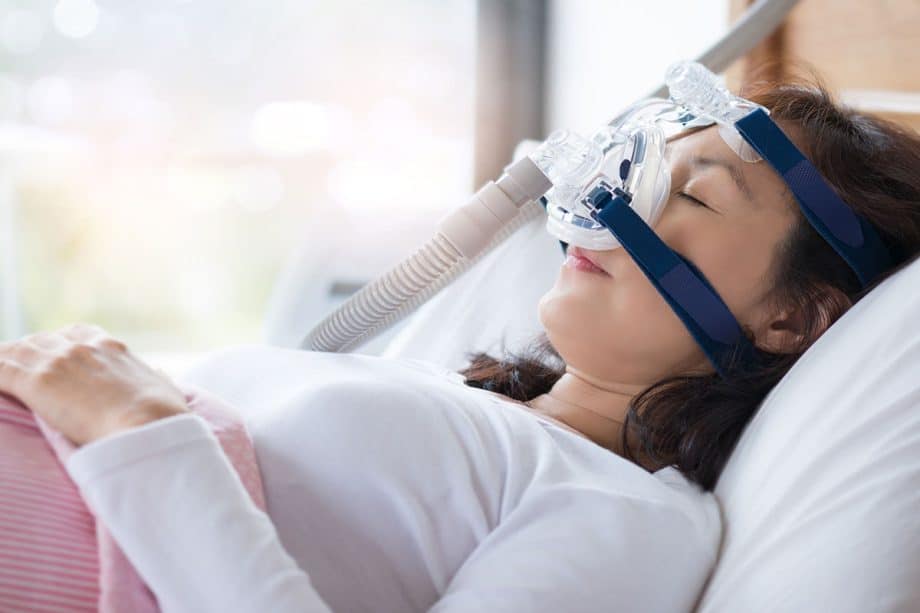Sleep apnea is a common but serious disorder where breathing repeatedly stops and starts during sleep. Traditionally, Continuous Positive Airway Pressure (CPAP) therapy is the main treatment. However, many patients find CPAP machines uncomfortable or inconvenient, leading to a search for alternatives. This guide explores how to manage sleep apnea without CPAP, offering insights into methods that may suit your lifestyle and needs.
The Challenges of CPAP Therapy and the Need for Alternatives
While CPAP machines are effective for treating sleep apnea, they come with their own set of challenges. Many users experience discomfort, skin irritation, or feel claustrophobic with the mask on. Additionally, the noise of the machine can be bothersome, impacting the quality of sleep for both the patient and their partner. Due to these reasons, individuals often seek alternative treatments that offer comfort and ease of use without compromising efficacy.
Non-CPAP Treatments for Sleep Apnea
Oral Appliances and How They Work
Oral appliances are custom-fitted devices worn during sleep. They work by repositioning the lower jaw and tongue to keep the airway open. These devices are often compared to sports mouthguards or orthodontic retainers. Oral appliances are less intrusive than CPAP machines and can be particularly effective for those with mild to moderate sleep apnea. Patients appreciate the ease of travel and maintenance, making them an attractive option for long-term use.
Lifestyle Changes and Positional Therapy
Simple lifestyle changes can significantly impact sleep apnea symptoms. Avoiding alcohol and sedatives before bedtime, quitting smoking, and maintaining a regular sleep schedule can all contribute to better sleep quality. Positional therapy, which involves sleeping on your side instead of your back, may also reduce snoring and breath interruptions. Special pillows and wearable devices can help maintain these positions throughout the night.
Weight Management and its Impact on Sleep Apnea
There is a strong correlation between obesity and sleep apnea. Excess weight, particularly around the neck, can obstruct your airway during sleep. By achieving a healthy weight through diet and exercise, many individuals see a marked improvement in their sleep apnea symptoms. Weight loss not only alleviates apnea but also enhances overall health, reducing the risk of associated conditions such as hypertension and diabetes.
Surgery Options for Severe Cases
For patients with severe sleep apnea who cannot tolerate CPAP or oral appliances, surgery might be considered. Surgical options include removing excess tissue from the throat, repositioning the jaw, or implanting devices to support the airway. While surgery is not the first line of treatment due to its invasive nature and recovery time, it can be a lasting solution for those who have exhausted other options.
Emerging Technologies and Therapies
Airway Stimulation Devices
Modern technology has introduced airway stimulation devices that function like pacemakers for the tongue. These devices are implanted under the skin and provide electrical stimulation to keep the airway open during sleep. This therapy is suitable for those with moderate to severe sleep apnea and offers a quieter, more comfortable alternative to CPAP.
Acupuncture and Herbal Remedies
Though still under research, acupuncture and herbal remedies are gaining popularity as complementary therapies for sleep apnea. Acupuncture may improve airflow and reduce snoring, while certain herbs can relax the airway muscles. Combining these natural therapies with conventional treatments can offer a holistic approach to managing sleep apnea.
Positional Therapy Devices
Positional therapy devices, such as belts or shirts with padding, are designed to prevent back-sleeping. These devices have shown promise in reducing apnea events for positional sleep apnea sufferers. They are simple to use, non-invasive, and can be an effective solution when combined with other lifestyle changes.
The Benefits of Consulting a Dentist Regarding Sleep Apnea
When it comes to diagnosing and treating sleep apnea, your dentist is a good place to start. A dentist can conduct a thorough evaluation and recommend the most suitable treatment based on the severity of your condition, personal preferences, and lifestyle. In many cases sleep apnea can be successfully managed by your general dentist.
Conclusion
Exploring alternatives to CPAP therapy can lead to improved comfort and compliance in managing sleep apnea. Each patient’s needs are unique, and finding the right balance of treatments can make a significant difference in quality of life. Armed with the knowledge of available options, you are encouraged to take control of your sleep health and consult with professionals to tailor a plan that suits you best.
Frequently Asked Questions
Can sleep apnea be managed without any devices?
Yes, mild cases of sleep apnea can often be managed with lifestyle changes such as weight loss, avoiding alcohol, and sleeping on the side. However, it’s essential to consult a healthcare professional to determine the best course of action.
Are there any risks associated with alternative treatments?
While alternative treatments are generally safe, they may not be suitable for everyone. Some methods, like surgery, carry risks and require careful consideration. It’s crucial to discuss all options with a healthcare provider to ensure safety and effectiveness.
Schedule a Consultation
If you think you may be suffering from sleep apnea, schedule a consultation with Stuart Prosthetic Dentistry. After a brief evaluation and discussion of your symptoms a diagnosis can be reached and treatment options recommended.
Call 772.286.1606 or contact us today to learn more and schedule an appointment.

